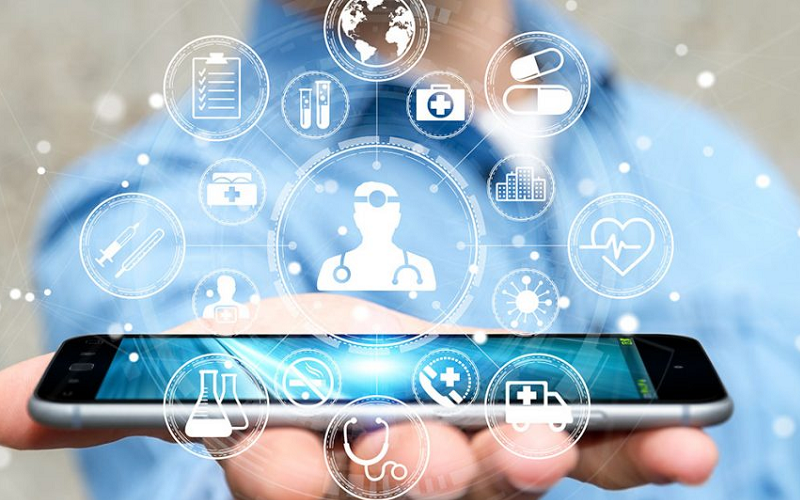The Evolution of Mobile Healthcare Units: Revolutionizing Healthcare

In an ever-evolving world, where time is of the essence and accessibility is paramount, the healthcare industry has embraced a transformative solution: mobile healthcare units. These mobile clinics are far from being just an ambulance service; they represent a shift towards providing essential healthcare services right at people’s doorsteps, especially in underserved areas. A crucial element that makes this possible is the mobile lab bench, a versatile and essential piece of equipment that allows medical professionals to perform tests, diagnostics, and treatments efficiently on the go.
What Are Mobile Healthcare Units?
Mobile healthcare units are essentially fully equipped, portable clinics housed within vehicles or vans that are designed to deliver medical services wherever they’re needed most. These units bring healthcare directly to communities, alleviating the challenges of limited access, particularly in rural or remote areas. The services offered range from routine check-ups and vaccinations to more complex procedures like diagnostic tests, blood work, and even minor surgeries.
These units are often equipped with state-of-the-art medical equipment, including diagnostic tools, examination rooms, and even mobile lab benches, enabling healthcare providers to perform on-site testing and diagnosis. The convenience and flexibility of these units are key in extending healthcare accessibility, offering timely interventions, and reducing the strain on hospitals.
How Mobile Healthcare Units Are Revolutionizing Healthcare Delivery
One of the biggest challenges in healthcare today is accessibility. Mobile healthcare units are a game-changer in addressing this issue, providing much-needed care in areas where hospitals or clinics are too far or too costly to reach. These units have made healthcare more affordable, efficient, and accessible, especially for those in lower-income or rural communities.
By offering a broad spectrum of services, from preventative care to emergency treatment, mobile units have significantly reduced waiting times and hospital congestion. The mobile lab benches inside these units are especially useful for quick blood tests, urine analysis, and other diagnostic services, allowing for faster diagnosis and treatment decisions.
Bringing Healthcare to Underserved Communities
The impact of mobile healthcare units is most significant in underserved areas. Communities that previously lacked access to essential medical services are now able to receive quality care without the need for extensive travel. For many people, this is not just a matter of convenience but a matter of health and survival.
Whether it’s a rural village, a remote island, or an urban neighbourhood with limited healthcare infrastructure, these units break down geographical and economic barriers. Equipped with a mobile lab bench, they offer diagnostic capabilities that ensure quality healthcare is no longer confined to traditional hospitals or clinics.
Innovation in Mobile Healthcare Technology
Mobile healthcare units are also at the forefront of technological innovation. As technology advances, so does the range of services that can be delivered through these units. In addition to routine medical care, mobile healthcare units are increasingly using telemedicine and remote monitoring to connect patients with specialists and healthcare professionals located elsewhere. This real-time interaction is facilitated through advanced communication tools, which means patients don’t have to leave their communities to receive expert care.
The integration of mobile lab benches further enhances the services offered. These compact yet highly functional workspaces ensure that doctors and nurses can conduct a variety of tests directly within the mobile unit, streamlining the process and providing instant results. This advancement has been a breakthrough in the efficiency of healthcare services, particularly in emergency and urgent care scenarios.
The Future of Mobile Healthcare Units
As the world continues to deal with public health challenges, including pandemics and healthcare crises, the demand for mobile healthcare units is expected to grow. With the rise of technology, these units are becoming more sophisticated, enabling a wider array of services to be offered, from mental health support to chronic disease management. The potential for future development is enormous, with innovations like AI-driven diagnostics and robotics likely to make their way into mobile units in the near future.
One thing is certain: the evolution of mobile healthcare units will continue to shape the future of healthcare delivery. By making healthcare accessible, affordable, and convenient, these units are changing the way we think about healthcare. They not only bridge the gap in underserved areas but also set the stage for a more inclusive, efficient, and patient-centric healthcare system.
Conclusion
The rise of mobile healthcare units is one of the most exciting developments in healthcare today. With their ability to provide critical services to those who need them most, these units, equipped with cutting-edge technology like mobile lab benches, are setting a new standard for healthcare delivery. As technology continues to evolve, the potential for mobile healthcare units to transform the way we access and experience medical care is limitless. Whether it’s offering essential services in rural areas or improving emergency care, mobile healthcare units are undoubtedly revolutionizing the healthcare landscape.




